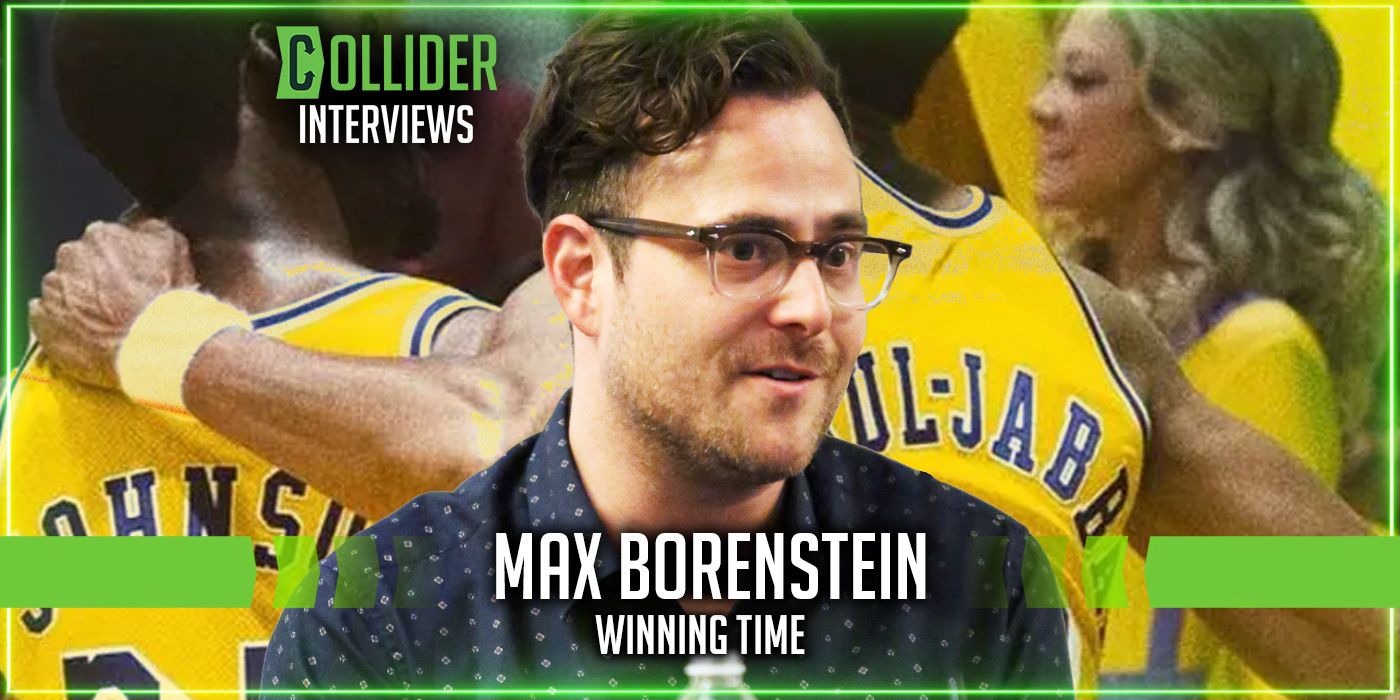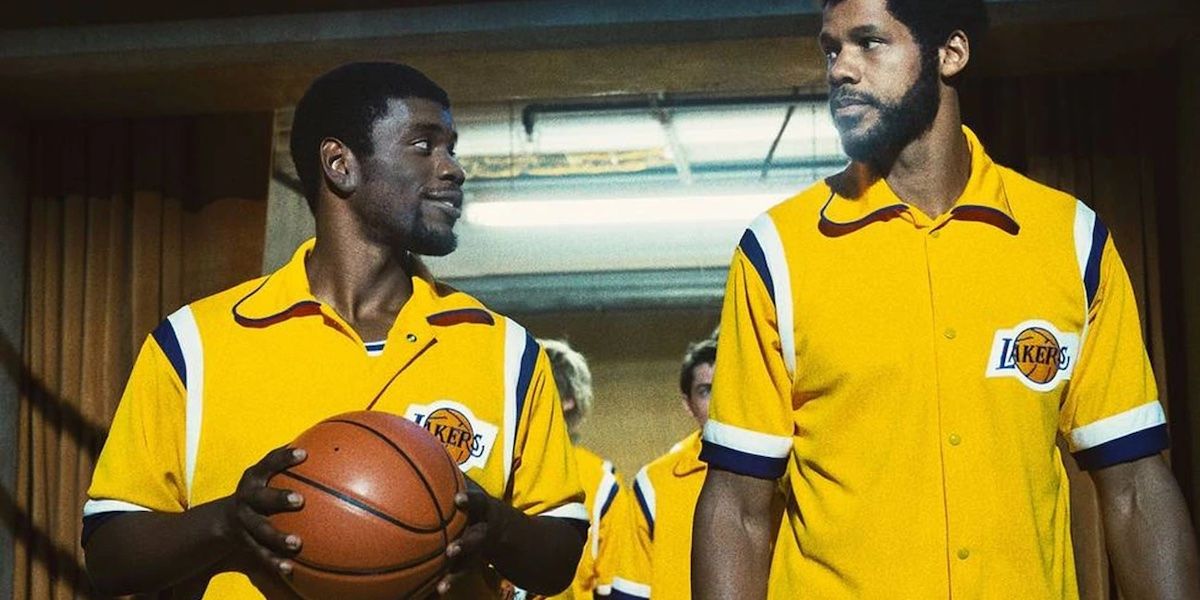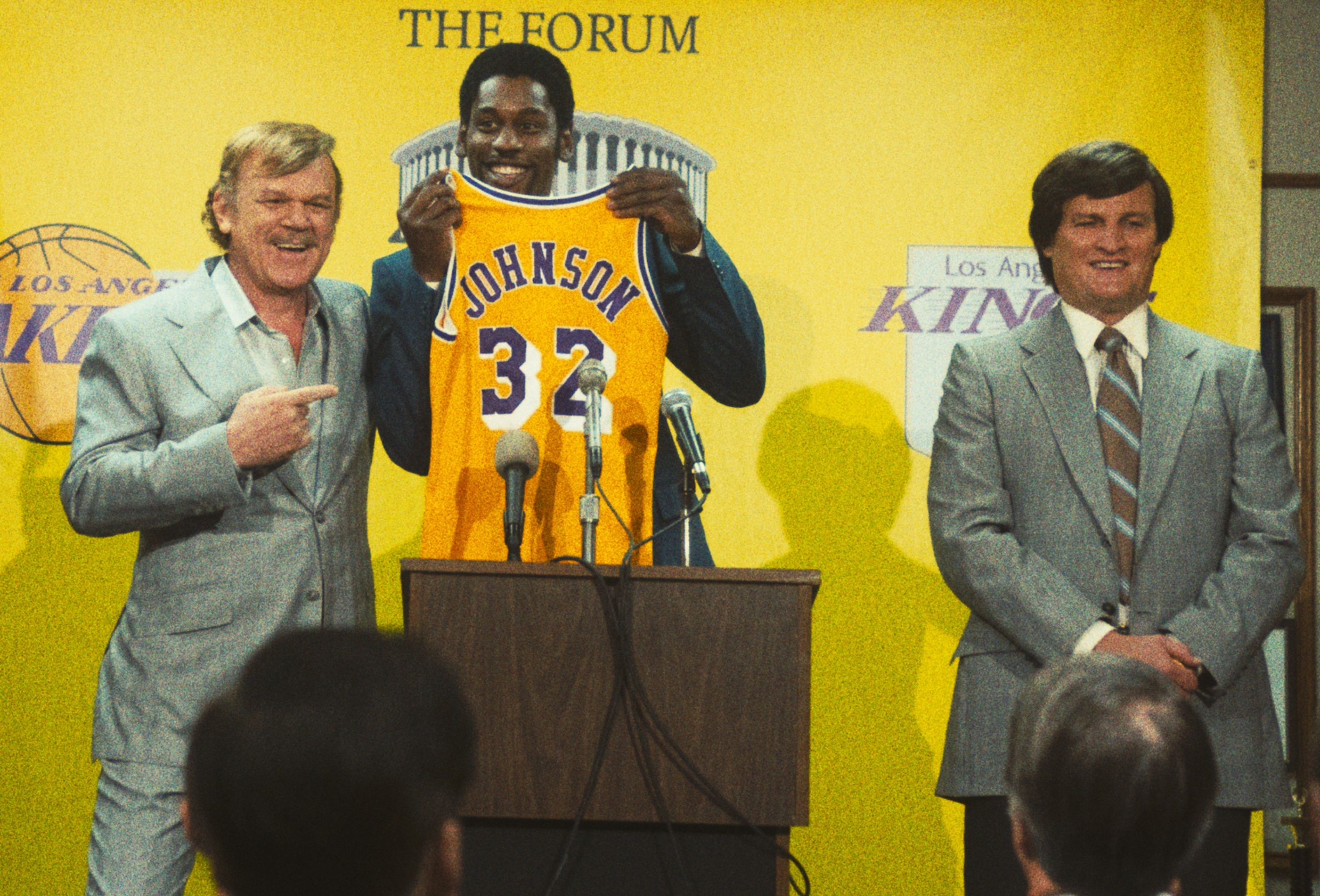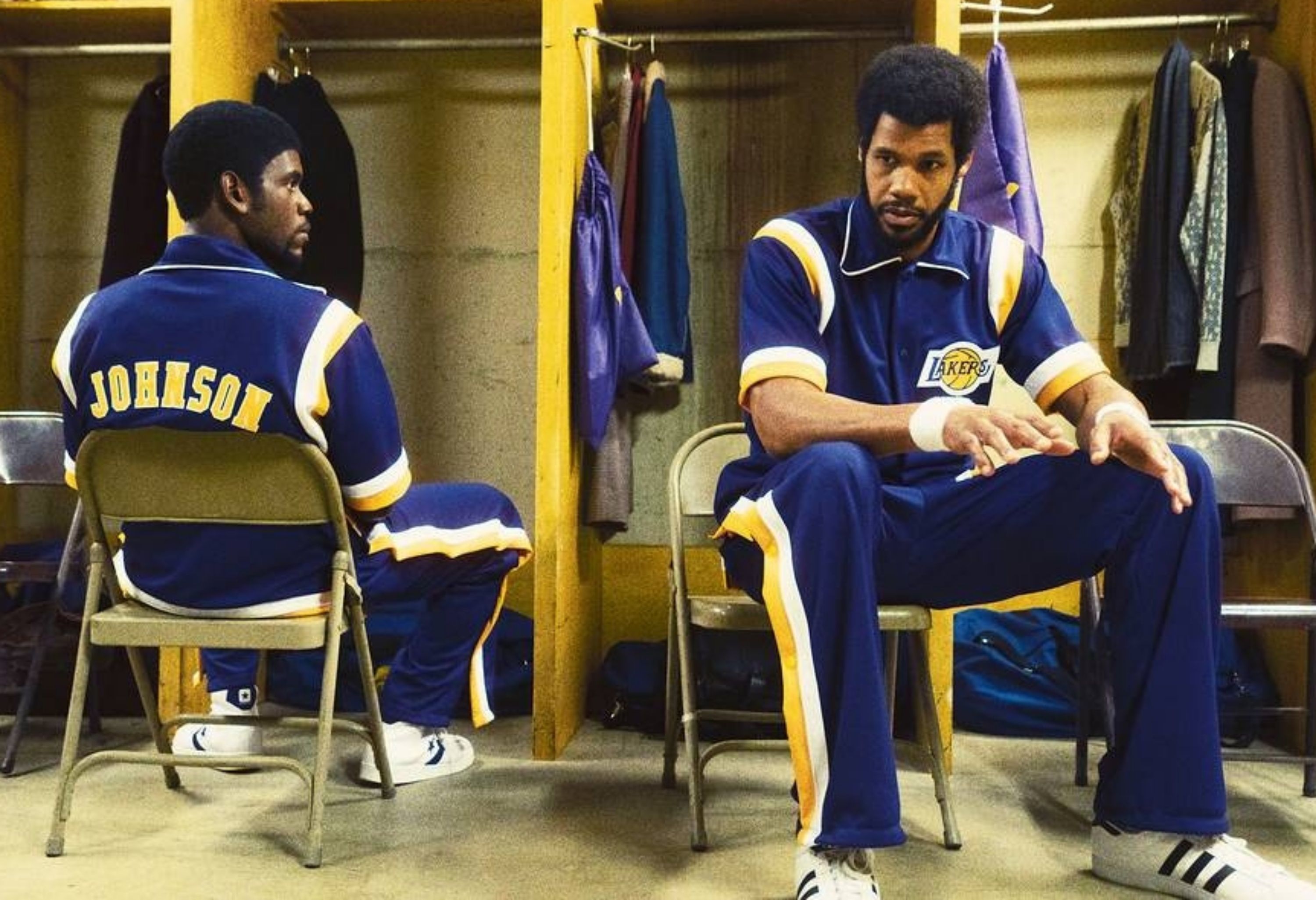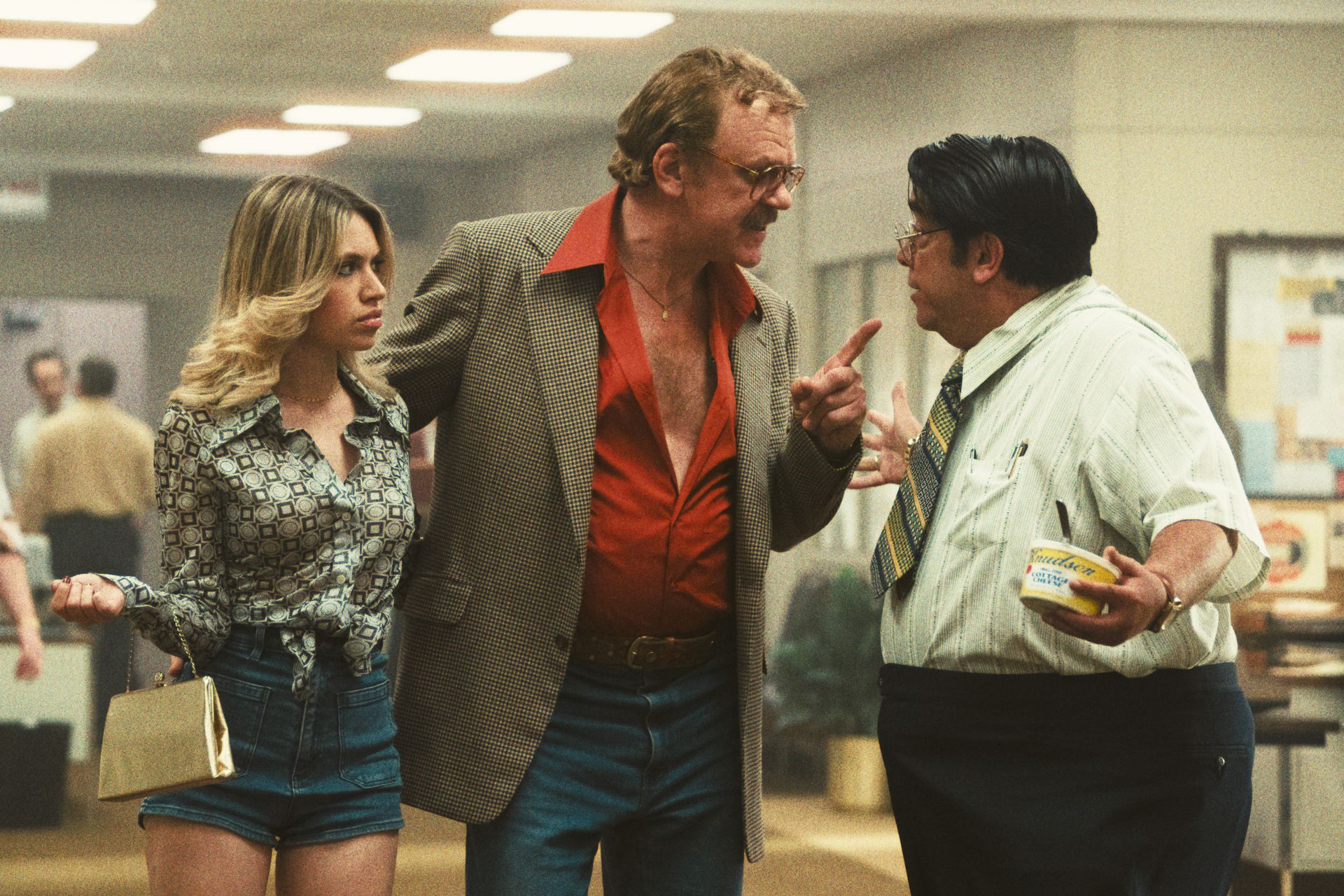From co-creators Max Borenstein and Jim Hecht, and with a pilot directed by executive producer Adam McKay, the 10-episode HBO series Winning Time: The Rise of the Lakers Dynasty follows the intertwining professional and personal lives of the 1980s Los Angeles Lakers. What became one of sports’ most revered and dominant dynasties started with a vision set in motion when Dr. Jerry Buss (John C. Reilly) took over and reinvigorated the franchise, bringing together the flashy characters and the unsung heroes that forever changed the NBA and what the fans grew to expect from basketball.
During this 1-on-1 interview with Collider, showrunner Borenstein talked about the challenges of tackling such an epic project, discovering new things about the famous figures while uncovering the unknown characters of this story, honoring the legacy of the Lakers and the Buss family, the importance of having passion for a project and a creative team that you trust, creating the basketball scenes, and that they have a plan for possible future seasons.
Collider: First of all, I’m an L.A. native, which makes this interesting to me. I’m not normally a big sports watcher, but I love concerts and live performances, and this feels very similar to that, so it’s very much working for me.
MAX BORENSTEIN: I love that. Thank you.
When you look at your credits and the fact that you’ve had your hand in a few Godzilla and King Kong movies, it seems you’re a go big or go home kind of guy. When you started on this, did you realize how big of a project this show would be, from the amount of cast members to all of these moving parts of the story?
BORENSTEIN: Honestly, I didn’t think about it, in that respect, because for better or worse, I fall in love first with a story or an idea, and then I think about all the things that are gonna make it difficult or impossible to actually pull off, afterwards, which is maybe a blessing. I’m an L.A. native too and I was a basketball fan growing up. Having this story about the moment where L.A. basketball transformed culture and brought sports and entertainment together in a way that changed not only the NBA, but influenced popular culture and fashion globally was just a dream come true to be able to invest into. The more I got to know these characters beyond what I thought I knew, the more it became clear that it was a story worth telling. And then, it became clear, as we started to mount it, that it was an enormous undertaking. But that comes later, and by then you’re in, so you’ve just gotta make it work.
Did you ever have a moment where you just got completely overwhelmed, especially when you were staring down the blank page and there was just nothing there?
BORENSTEIN: When you’re telling a true story, there’s a gift you’re given, which is that you have what to draw upon. It doesn’t do it for you. It’s still just as challenging to find the way in. But when we, as the writers or at any phase of production, are asking ourselves, “What do we do about this thing?,” we can draw upon what really happened. We can also draw upon our own experiences of the era. I really encouraged everyone, at every level in the departments, to bring their experience of that era to bear. There were turns of phrase and little details that amused us and reminded us of things. Hopefully, for audiences, that will take a story that’s about people who are rich and famous and playing in this rarified air, but they’re also experiencing the same world that we lived through or that we remember or have heard of. There’s something very relatable and interesting about that, that makes it tangible in bringing it to life.
Did it feel more challenging to humanize the characters that everybody knows, like Jerry Buss or Magic Johnson or Kareem Abdul-Jabbar, or to figure out who the characters are that we don’t know as well, like Jerry Buss’ mother or Claire Rothman?
BORENSTEIN: That’s a great question. Both of those aspects were the challenges and the rewards of getting to do this. There are characters you think you know. The aspects that we know, as the average viewer are certainly a part of and a facet of who these people are, but it’s only one facet. And so, for us, finding out and digging into the elements of these characters that were lesser known was fascinating. At the same time, we were able to shine a light on some of the figures who aren’t as well known. Claire Rothman is a great example of someone who had an indelible impact on sports and on culture in her work at The Forum and is not a household named yet. And Jack McKinney, who invented the Showtime offense and, for reasons that I don’t wanna divulge, wound up not getting to see it through completely to fruition, he’s a character who had an enormous impact on the game of basketball, but who is really, largely forgotten. For us, the ability to shine a light on those people was every bit as rewarding as the ability to bring to life and dimensionalize these people that everyone thinks they know.
And also interesting to take figures like Pat Riley and Jeanie Buss, who we know at a very different point in their lives and where they went after that, but to figure out who they were before that.
BORENSTEIN: Exactly. Jeanie and Pat are both characters that are now in a public eye. Learning that Pat Riley, at this moment in time, was not the Armani-wearing sex symbol that he became, but rather was what felt, at the time, like a mid-30s, washed-up basketball player, who had no idea what his future would hold. Not only is that fascinating, but it’s also really relatable. I keep saying that this is a story about a bunch of underdogs and fish out of water, but they’re also people who you don’t think of as underdogs because these are people we think of as being a dynasty. And yet, these are the moments before the moment of transformation. We’re telling that story of transformation. Jeanie begins as a teenager working for dad and becomes every bit as capable an entrepreneur and runner of her show as her father was.
You made this series without the direct involvement of the Lakers or the Buss family. Since you didn’t have any of them to answer to in the literal sense, what did you used to guide yourself, in honoring them? Was it just working from a gut feeling?
BORENSTEIN: Luckily, these are all people that spent much of their lives in the public eye, so many of them have told their story in their own words, in interviews and in books. There are tremendous resources that we were able to draw upon beyond, beyond Jeff [Pearlman]’s book Showtime, which was a great resource. We also spoke to some consultants who were there and who experienced it, and had some of the inside stories. We did our best to gather and collect as much information as we possibly could, and then there comes a moment when we have to imagine what happened behind closed doors. When it came to that, that’s really where we, hopefully, are able to do something that a documentary can’t. We’re trying to bring to bear everything we understand about these characters, from their words and from the public record, and then try to bring our own humanity to bear, and understand and relate to the experiences that they were going through.
With all the real-life people that are being portrayed in this, who would you be most interested in screening it for, so that you could see their reaction to it?
BORENSTEIN: Oh, my. I can’t even imagine how odd it must be to have a show, a film, or anything made about your life. I don’t know if it will ever happen for me, but I would imagine it would be very uncomfortable. That said, on our end, every one of us, behind the camera and in front of the camera, came to this with a tremendous amount of love, appreciation, and respect for what these men and women accomplished. I can only hope that if any of them choose to watch, that they can appreciate and feel that this is a love letter to them.
Being a showrunner is such an interesting job because there isn’t one way to prepare for it and you have to know a little bit about everything, so that you can answer any questions that come up. Does it feel like a sink or swim type of job, where you just jump in and know very quickly, if it’s something that is meant for you?
BORENSTEIN: I think that’s probably true. Making a television show, at any level, with all the entire crew and the cast, requires such dedication and such tireless effort that, to me, the rule is that you’ve gotta have passion. You’ve gotta love what you’re doing and you’ve gotta love the project. You don’t always love every project that you work on in the same way, but in this case, I was certainly blessed with that. This is right in the sweet spot of so many things that I love and am fascinated with, and that feel very personal to me, even though I’m not someone who ever played professional basketball or was in that world. As tiring, as exhausting and as difficult as it can get, that is the one thing that becomes your buoy. The other thing is just getting to work with such an incredible group of talented crew and an extraordinary first class cast, it doesn’t make it easy, but it makes it a lot easier. At some point, if you step back, you’ll realize that you’re in such good hands. The whole thing is a trust fall. They have to trust me, and I have to trust them. As long as we’re bringing our passion to it and you have such a group of incredible talent, I think you’re in really good shape.
There have been a lot of shows and movies that have tackled sports in some way, and everybody seems to tackle the actual shooting of the game differently. What was it like to figure out that aspect of it and to see how it looked when it was done?
BORENSTEIN: Amazing. First of all, the hats have to go off to every member of the cast and crew that was involved in that. Those actors who played the game in our show were not only doing scenes that were as nuanced and demanding as the scenes that the likes of John C. Reilly was performing, but they were also training in basketball, every day. They had to be able to reproduce the basketball, not for the purpose of competing with Magic Johnson, because no one can, or being as great as Kareem Abdul-Jabbar because no one ever will be. They had to be able to recreate moments of that basketball in a way that would serve our story and allow us to get inside it in a way that you can’t see when you’re watching the old games on YouTube.
That really was the goal, and everyone had to bring it to life, from the makeup people with the sweat, to the costume team with the uniforms and the shoed that aren’t in production anymore, to an arena of hundreds of people that had to be dressed in period attire and outfitted in period wigs and facial hair. It was an enormous task, all in the midst of COVID, where everyone was tested and cleared, every single day, in order to prevent shutdowns. It was a towering achievement. We shot it on a set that was built to look like The Forum, but that only had a certain amount of seats and, beyond that, it was green screen. When you watch those shots that have been finished with the entire arena rebuilt to look like arenas that sometimes don’t exist anymore, and if they do, they certainly don’t look the same, there was a whole other group of artists and craftspeople who bring that to life on the VFX side. It’s truly incredible.
What is the plan for this? Are you looking to do another season and keep telling more of this story? Have you thought about how much of this story you’re hoping to tell?
BORENSTEIN: That’s in the hands of HBO and the audience, but if we’re fortunate enough to get an opportunity to continue this story, we will dive in and can’t wait. We know where we would go because we have this gift of knowing what happened and knowing how we would interpret that and what we would like to tell.
Winning Time airs on Sunday nights on HBO and is available to stream at HBO Max.

